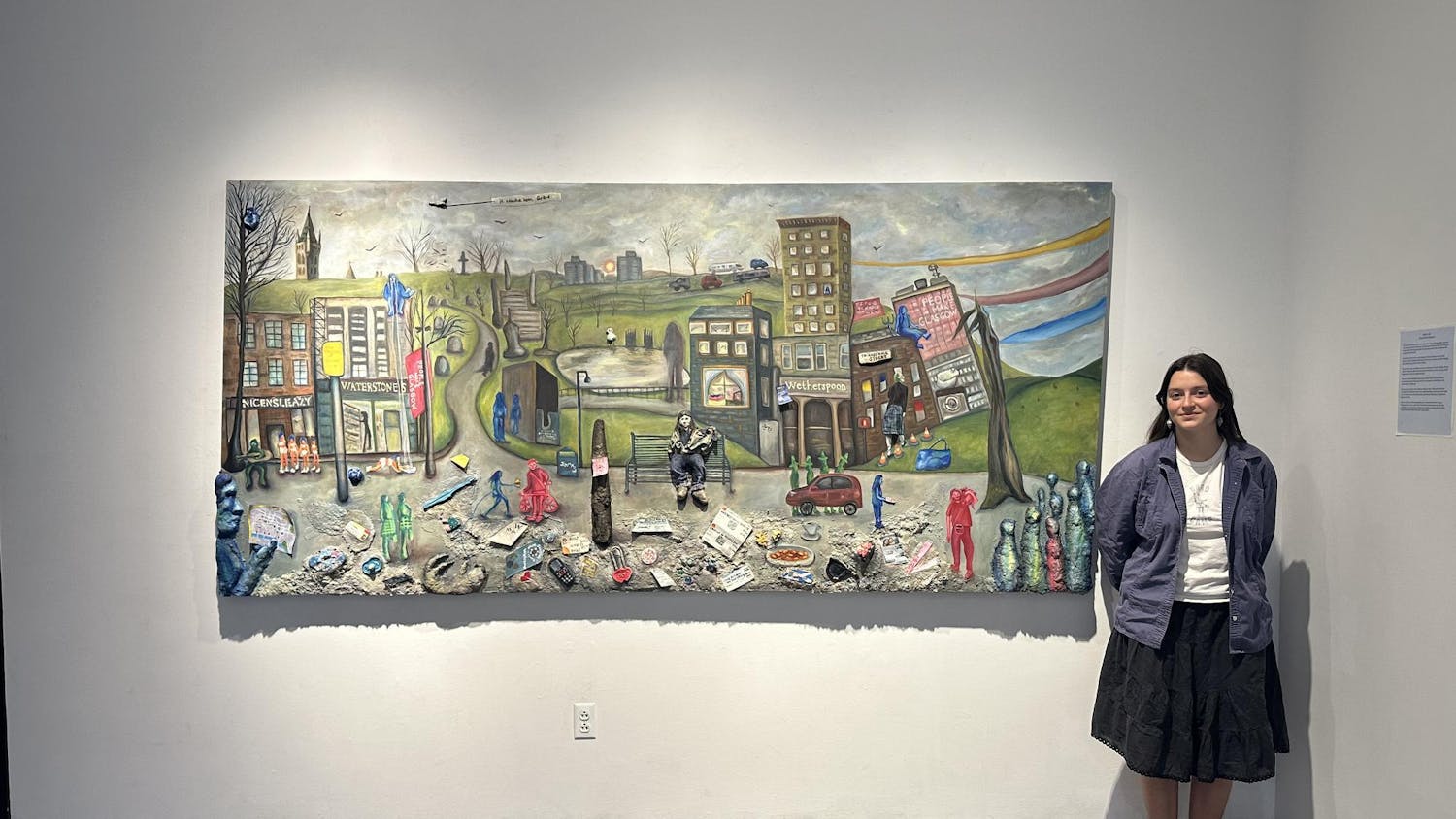Labels carry weight in Hollywood. They force actors, directors and writers into boxes that restrict their creative potential. But inherent in this labeling process is an understanding that these characterizations reflect merely impermanent and fluid narratives capable of renaissance and reconstruction.
Other labels are more difficult to shake in 2017. The Academy of Motion Picture Arts and Sciences labeled Director Asghar Farhadi a cinematic visionary, nominating his film “The Salesman” for an Oscar in the ‘best foreign language film’ category. President Trump labeled Farhadi a threat to national security through his immigration ban. Farhadi is Iranian, and the Academy Awards ceremony occurs on Feb. 26. Do the math.
Various media outlets ran the controversy around Farhadi’s precense at the awards ceremony, and reports soon emerged that he could potentially attend by applying for a special exemption from Trump’s ban. The ban has recently been overruled by the Federal Court of Appeals, but Farhadi announced that he would boycott the Oscars, claiming: “The possibility of (my) presence is being accompanied by ‘if’s’ and ‘but’s,’ which are, in no way, acceptable to me.”
The controversy surrounding Farhadi’s attendance highlights emerging tensions between Trump and the sphere of arts and culture. Initial returns on the Trump administration in this regard are not promising. Reports suggest that the president will consider cutting the National Endowment for the Arts, the National Endowment for the Humanities and the Corporation for Public Broadcasting from the national budget. While such action is yet to come to fruition, Trump has already participated in a series of silencing attacks on opposing voices by firing acting Attorney General Sally Yates and placing a gag order on the Environmental Protection Agency. These moves speak to a dedication to censure and uniformity that is particularly frightening to artists, especially following eight years of the Obama presidency.
In a recent article for the New York Times, Wesley Morris considered former President Barack Obama’s relationship to art and culture, writing: “Mr. Obama has always seemed to understand the importance of culture as a mirror, window, escape hatch and haven. The Obamas were catholic in their tastes not because they had to be, but because that’s what we should be: open.” Obama understood the White House to provide a platform that legitimized marginalized voices, and so he actively supported storytellers and narratives that drove contemporary conversations about race, class and gender. During his presidency, Obama screened films at the White House like “Lincoln” and “Selma,” and, more recently, Michelle Obama hosted the cast of “Hidden Figures” for a screening of the Oscar nominated film. Donald Trump’s first White House screening choice? “Finding Dory.”
Of course, there’s more to a presidency than its attention or aversion to marginalized communities in popular culture. But the U.S. is not so far removed from the days in which black and brown artists could not step foot inside the White House that we can disregard the artisitic narratives privileged by the president.
The choices of the Trump presidency will send shockwaves felt both in Hollywood and at the university level, particularly on campuses like Brown that enjoy both a strong cinematic and socially progressive presence.
Brown Motion Pictures, the Ivy League’s largest student-run film production company, promotes an ideology that runs counter to Trump’s early moves as president.
“There’s never been a more vital time to make art than at this moment,” said Ellie Gravitte ’17, a managing director of BMP. “I can speak for the board of BMP when I say we are really fortunate to be a producing body to help young voices make things to respond to the political climate.”
BMP enjoys a preeminent position on campus — the organization offers a platform for artists hoping to express their varying responses to the cultural climate under a Trump presidency. The Trump administration’s current relationship to the world of arts and culture only underscores the urgent need for independent organizations that encourage progressive thought. These independent bodies have an obligation to provide a platform for voices that have been further marginalized by the Trump administration. “The most important thing that producing bodies on campus should do is to keep creating and keep writing,” Gravitte said, adding that she regards BMP as an ideal patron for this type of inclusive, student-based art.
Brad Weekes ’17, a director of Brown University Film Forum, similarly understands the value of independent film organizations carrying on the diversity of perspective of the Obama administration. “It’s easy to say Obama helped create a liberal progressive environment, but it also came from people pushing into that space,” Weekes said. More films portrayed this progressivism because of “film societies, like the one at Brown, committing to, engaging with and responding to difficult ideas.”
As a screening collective, BUFF works to push into cultural discomfort, featuring films that are not only critically acclaimed and engaging but also reflect diversity in thought. In an attempt to distance itself from the Euro-centric model of popular cinema, BUFF recently partnered with the Middle East studies department to sponsor a series of screenings highlighting films from regions in the Middle East. Actions such as these make BUFF a platform for both resistance and cinematic celebration. Groups like BUFF and BMP are natural heirs to the Obama legacy of supporting marginalized artistic voices.
“Look at the films people are talking about: ‘Moonlight,’ ‘Fences,’ ‘Hidden Figures,’” Weekes said. “These films tackle things that are uncomfortable, like blatant racism and homophobia … Films ultimately can give voice to the voiceless and the ignored.”
For those who believe platforms for voices don’t matter, remember what happened to Leslie Jones. When Columbia Pictures announced that the black actress and Saturday Night Live standout would co-star in a female-led remake of “Ghostbusters,” Jones faced racially and sexually charged backlash for her inclusion in the cast. Alt-Right media personality, Milo Yiannopoulos, led a horde of Twitter trolls in an unprovoked attack against Jones so vitriolic that Yiannopoulos’ Twitter account was suspended. Yiannopoulos is an editor for the right-wing media outlet, “Breitbart,” which at the time of the attack was run by Steve Bannon, now Trump’s Chief Strategist and closest advisor. This story matters, even within the liberal bubble of Brown’s cultural community. Bannon offered a platform for Yiannopoulis’s voice. Trump then gave Bannon the largest platform in the country: the White House.
Next time you attend a BUFF screening or watch a BMP film, remember that something larger is at work here. These organizations move against a regressive current wrought by the Trump administration. The mere act of providing platforms for marginalized voices embraces an approach to art that is no longer mirrored by the White House. By supporting artistic spaces like BUFF and BMP that encourage inclusivity in both representation and expression, your actions can now take the form of resistance.




